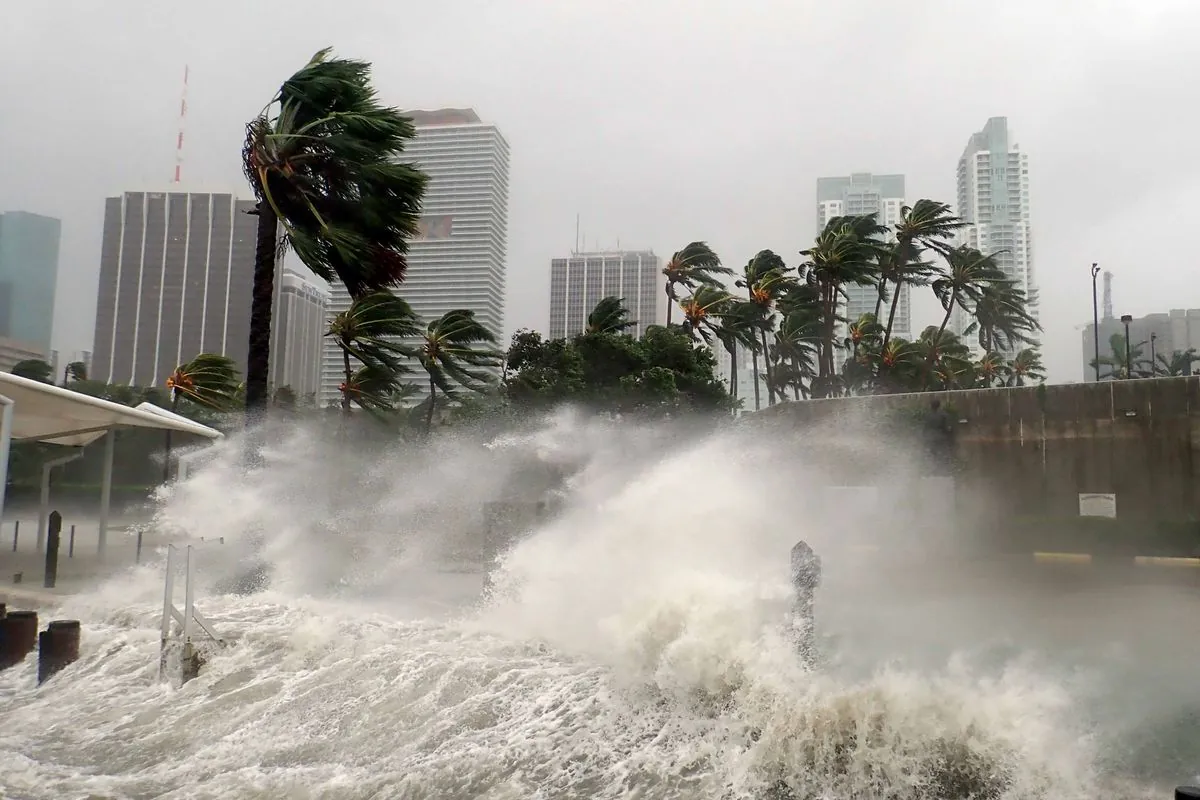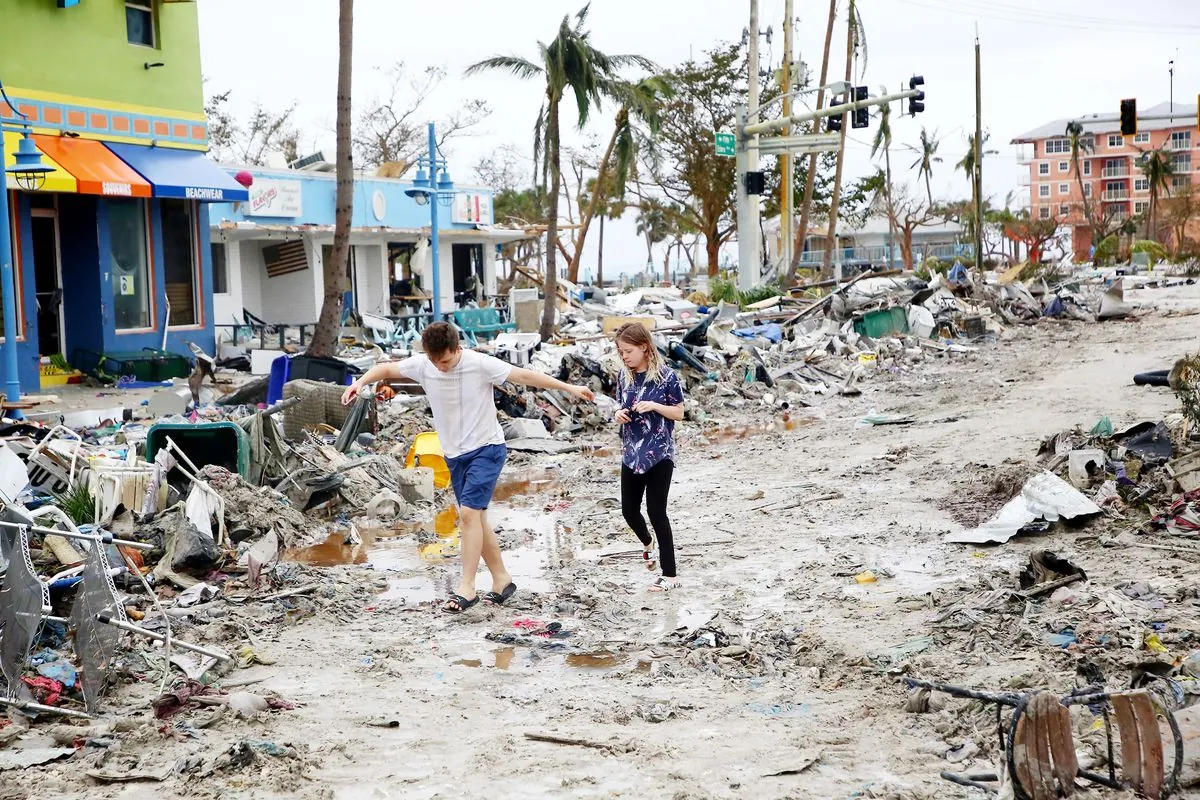Viral Hurricane Helene Video Debunked: Footage Predates 2024 Storm
A viral video claiming to show Hurricane Helene's impact on Fort Myers, Florida, has been exposed as a compilation of older storm footage. Fact-checkers traced clips to earlier weather events, highlighting the importance of verifying online content.

A video compilation purportedly showing the effects of Hurricane Helene in Fort Myers, Florida, has been circulating on social media platforms. However, a thorough investigation reveals that the footage predates the 2024 storm, highlighting the persistent issue of misinformation during natural disasters.
The video, initially shared on TikTok and later spread across Meta platforms, claimed to depict scenes from September 26, 2024, when Hurricane Helene made landfall as a Category 4 storm. Hurricane Helene, with sustained winds of 130-156 mph, caused significant damage and loss of life across six states. As of October 3, 2024, the death toll had reached at least 200 and was expected to rise further.
Fact-checkers at Reuters meticulously analyzed the video, tracing the origins of individual clips. Their findings reveal that five out of the eight segments were from storms that occurred before Hurricane Helene:
- A clip showing waves crashing near a brown house was identified as footage from Scituate, Massachusetts, in February 2021.
- A scene of a white boat rocking on water, while captured in Fort Myers, was actually from Hurricane Ian in September 2022.
- Footage of heavy rain and flooding in Cedar Key, Florida, was traced back to Hurricane Idalia in August 2023.
- A clip featuring palm trees and patio furniture was linked to a weather event in Kure Beach, North Carolina, on September 16, 2024.
- The penultimate clip, showing heavy rain and flying debris, was identified as footage from Hurricane Fiona in Ponce, Puerto Rico, in September 2022.

This incident underscores the importance of fact-checking and verifying information, especially during natural disasters. The spread of misinformation can lead to confusion and potentially dangerous situations for those in affected areas.
"This article was produced by the Reuters Fact Check team. Read more about our fact-checking work."
It's crucial to rely on official sources such as the National Hurricane Center for accurate information during hurricane seasons. As climate change is expected to increase the intensity of hurricanes, the need for reliable and verified information becomes even more critical.
The viral spread of this miscaptioned video also highlights the role of social media platforms in disseminating both accurate and inaccurate information. TikTok, with over 1 billion active users worldwide, and Meta platforms have become significant channels for sharing storm-related content.
As we navigate the Atlantic hurricane season, which officially runs from June 1 to November 30, it's essential to remain vigilant about the sources of information we consume and share. Fact-checking organizations play a vital role in debunking false claims and ensuring that the public has access to accurate, timely information during critical weather events.


































